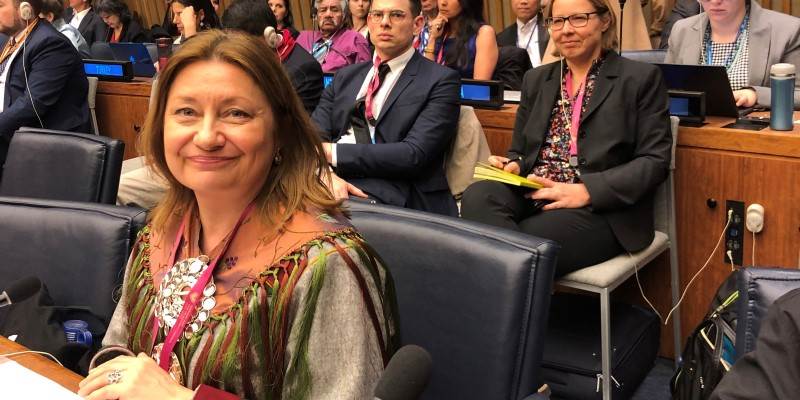Norway wish to emphasise the importance of facilitating the preservation and development of indigenous languages. The International Year of Indigenous Languages provides an encouragement for all of us to continue this work.
Norway appreciates UNESCOs efforts to organise the language year and the involvement of indigenous peoples and their representatives in the process. We further wish to acknowledge the important role of the Steering Committee, and in particular the co-chairs representing indigenous peoples.
Norway supports the international year for indigenous languages by being a partner, and encourage other states to also register as partners.
In our region, Sami languages are used across the borders. Cross border cooperation is therefore essential. The Sami Parliaments in Norway, Sweden and Finland cooperate on a project that aims to establish a common Sami language centre – Sámi Giellagáldu. The Norwegian Government supports this initiative with permanent funding. Additionally, extra funding has been allocated to Sámediggi to their work to follow up the language year.
In order to strengthen the development and use of the Sami languages in Norway the Government established a Sami language Committee in 2014, in close cooperation and consultations with Sámediggi. The Language Committee proposed in 2016 in its report several schemes and measures in a number of areas within the public sector. The report has been submitted to broad public hearing, and the Government has now started consultations with Sámediggi on how to follow up the report.
Chairperson,
There are still challenges both in Norway, and globally. Finally, we wish to highlight that effective participation by the indigenous peoples themselves is crucial when states develop measures regarding their languages.
Thank you.
